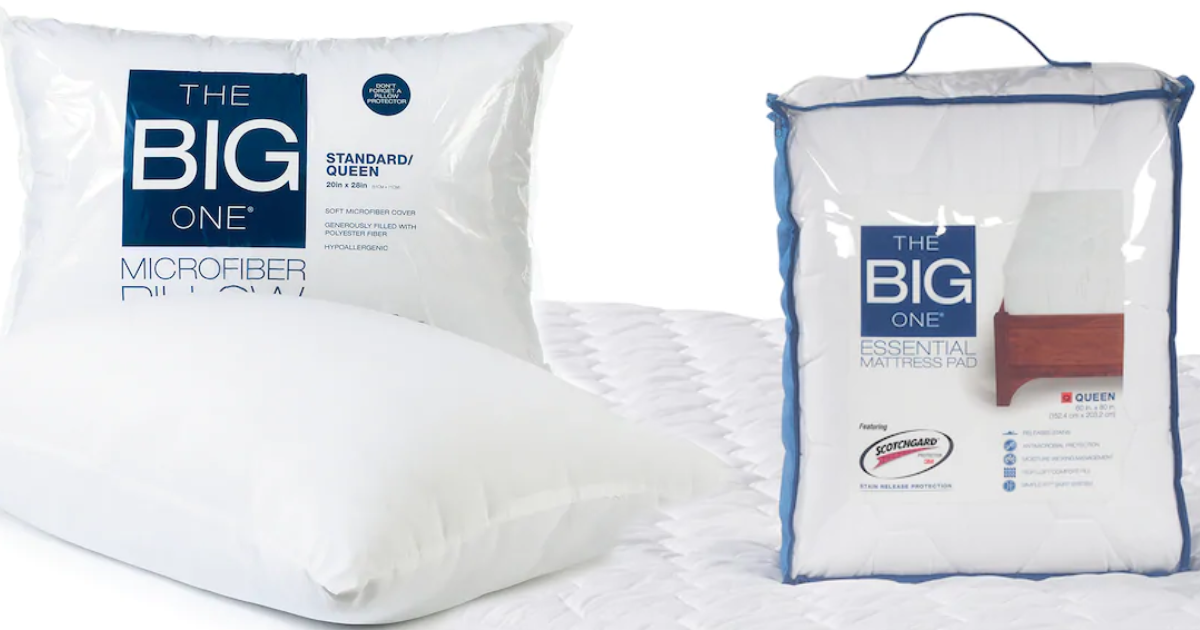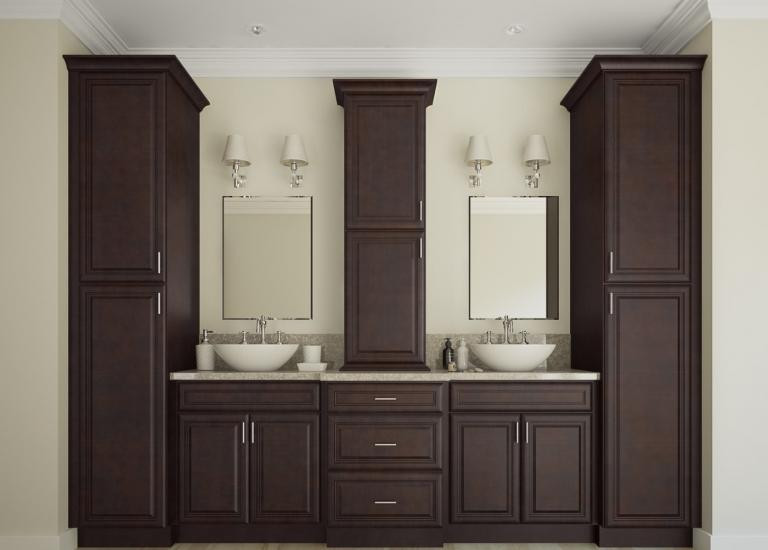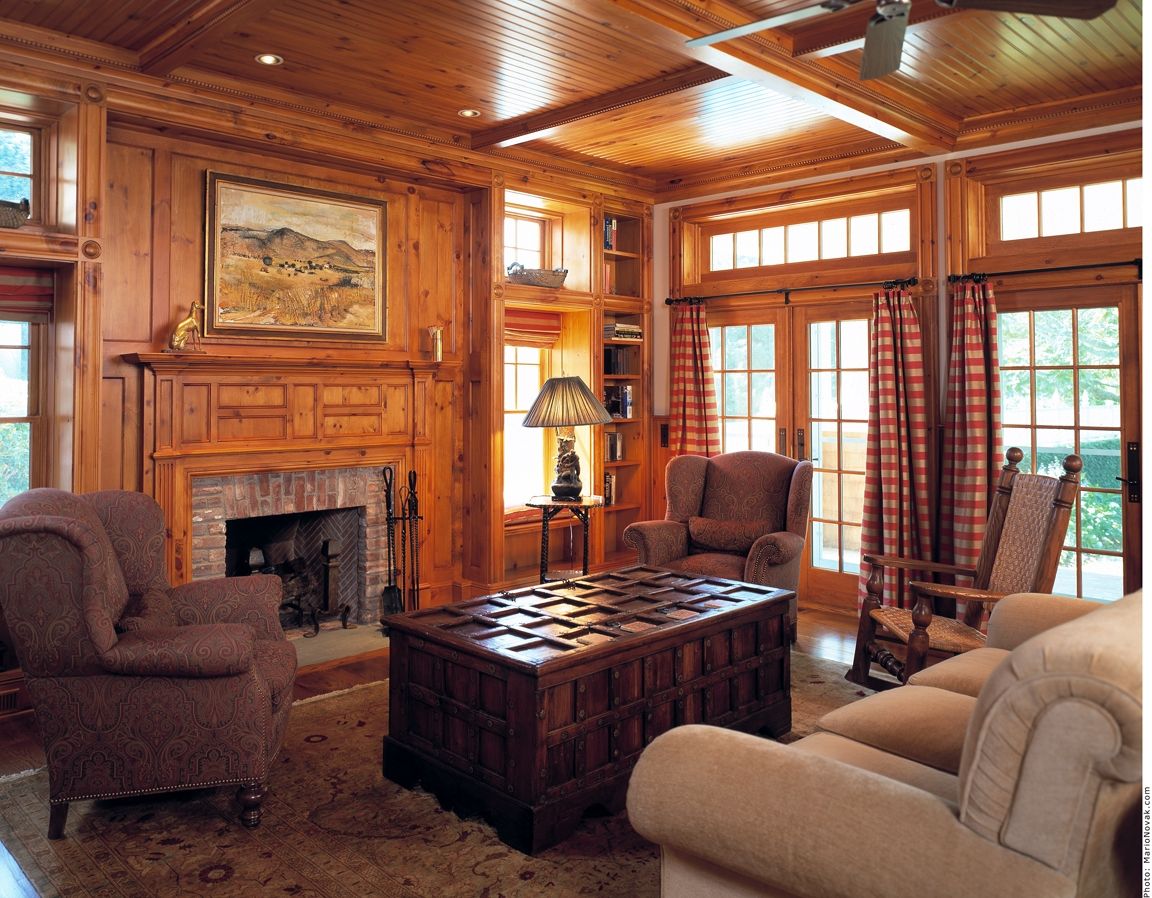Kitchen designs between 1908-1914 tended to be squarely influenced by the popular Craftsman style pioneered by Gustav Stickley, an American furniture maker and designer. His homes often showcased an open kitchen area, with one end leading to a separate dining area. The designs featured throughout were more primitive-esque, with cross-hatched cabinets and cabinets with glass fronts. Beaded cabinets were also common around the turn of the century, and even today, a carefully designed kitchen with Craftsman elements can invoke a distinguished style. The undertones to the designs of this era were widely reflective of the Arts and Crafts movement. Built-in hutches, sideboards, and open shelves were key components of the Craftsman kitchen, along with natural wood finishes, deep-toned paint colors, and small, yet polished details such as the tile backsplashes used in many kitchens of this era. Craftsman-Style Kitchen Designs From 1908–1914
Kitchens from the early 1900s remain a popular choice for homeowners today. A replica of a 1910s kitchen design might include a freestanding pantry, Arched cabinets with leaded glass, colorful tile backsplash, vintage-style appliances, or even a built-in drainboard. Many homeowners looking to mimic the style of the 1910s forgo modern appliances in favor of vintage-looking pieces. Small ranges like those used during this time period are often plastered with black and white porcelain enamel finishes, and smaller late models may include turquoise, green, or even yellow hues as accents. You may also come across smaller, non-vented box ovens these days. These ovens were often placed on the countertop or on a stand next to the range. 1910s Kitchen Design
While kitchens from the early 1900s are bound to evoke certain nostalgia, the aesthetic possibilities for these kitchen designs remain endless. Farmhouse sinks, whether they are white, black, or stainless steel, display a classic country aesthetic, while enamel pastas are the perfect accessory for any kitchen with a period-accurate feel. Traditional subway tiles and antique-style range hoods are also great elements for adding a vintage feel to the kitchen. When it comes to cabinets, traditional wood tones can add plenty of warmth. Dark or light tones may be chosen, along with a variety of door pulls or hinges. The popular Shaker-style cabinet is also an excellent choice for the vintage-inspired kitchen. Additionally, hardware such as drawer pulls and knobs, featuring intricate designs or finishes, can help create a unique, one-of-a-kind kitchen style. Kitchen Design From the Early 1900s
Vintage kitchen designs from the 1910s often featured minimalist layout and design elements. Kitchens of this time were generally made of oval or round-shaped tables and chairs that took up a minimal amount of space. This allowed plenty of room for foot traffic, and the focus was more on functionality than aesthetics. Traditional kitchen appliances of this era were often more primitive than what we are accustomed to today. For instance, laundry appliances and washers, up until the 1915s, were powered by hand and not electricity. Additionally, disk-style refrigerators called ice boxes were a common substitute for electricity or gas-powered refrigerators. Vintage Kitchens: Retro Design Ideas From 1910–1919
The 1870s-1914 period marked a huge shift in how homeowners and builders created cozy and livable kitchen spaces. In this era, kitchen designs tended to be a bit more rustic, commonly featuring smaller ranges, open shelving, and whitewashed walls. Floors were often made from stone or tile, and a range hood may have been included if the homeowner was lucky enough to have a gas stove. In addition to these components, details such as open cabinets, ceiling-hung pans, and timbered walls gave the kitchen a distinctive earthy feel. Copper utensils such as could racks, tea, and coffee pots, and kettles were also in abundance. Kitchen areas may have been cramped and small, but cozy details such as shelves and cupboards still showed the importance of the kitchen as the heart of the home. Historic Kitchen Designs from the 1870s-1914
If you’ve ever wondered what a kitchen from 1914 looked like, then take a peek at The George Lister’s kitchen in Baltimore, Maryland. Here, renovated kitchen cabinets are painted in bright blue and white, and the room is accented by a small island. The original cabinets have been kept intact and contain original design elements, enabling the owner to keep the design in line with the history of the property. One of the most notable features of this kitchen is the distinctive country-style sink with a fluted apron, which gives the room added charm. Additionally, the kitchen also boasts two vintage-style, stained-glass windows, giving the room a cozy and inviting atmosphere.The George Lister Renovates a 1914 Baltimore Kitchen
The 1914 Twin Model Home is an excellent example of kitchen designs from the early part of the twentieth century. Originally constructed by Ideal Homes Company in St. Louis, Missouri, the Twin Model Home displays many of the common elements of kitchen designs from this era, including a round, unfitted table and chair set, open shelves, and a stand-alone cupboard. It also features built-in cabinets with glass doors, which is a trend that began gaining popularity during this time period. The Twiner Model Home also displays a classic claw-foot tub, back-splash tiling, and an open counter space, all of which create a timeless and cozy kitchen space.Kitchen Design for a 1914 Twin Model Home
Creating a kitchen with early 1900s character is easy when you know what to look for. Start by seeking out vintage pieces of furniture and cabinets with a classic 1920s-style look. You may also consider adding an exposed granite countertop or reclaimed hardwood flooring to provide an historic vibe throughout the room. Antique appliances, while hard to come by, embody the aesthetic of an earlier era and can be a great way to give your kitchen charm and personality. To further transform your kitchen, consider adding brass, bronze, or even gold-plated details to the cabinets and walls. Finally, don’t forget tobring in plenty of classic colors, such as sage green, light blue, or pistachio to give it that vintage feel. Bring Early 1900s Character Into Your Kitchen Design
The classic New England kitchen design from circa 1914 stayed true to the region's style yet still managed to show its own unique flair. Complete with a rustic farmhouse aesthetic, these kitchens were typically filled with wooden furniture, white porcelain enamel finishes, and decorative tiles. Many kitchen appliances from this time were often made from wood, while tin was also popular for floor and backsplash tile. Most commonly, compact-sized stoves and refrigerators were favored, and pegboard wall systems for hanging kitchen storage items, as well as a butler’s pantry, were favored details. Classic New England Kitchen Design—Circa 1914
One of the best ways to get a vintage look in your kitchen is to find and use vintage pieces. Seek out small appliances that are still functional, but have a classic look. Also consider mixing and matching older fixtures and furniture with newer pieces to create a timeless aesthetic. And don't forget to include a vintage-style chandelier, such as a glass-beaded version, to bring a little bit of glamour into the room. When it comes to paint colors, consider utilizing greenish yellows and grays to mimic the look and feel of times gone by. Be sure to incorporate plenty of natural textures and materials, including wicker baskets, metal and porcelain-enameled pot and pans, and wood furniture pieces. Finally, accessorize in a manner that is true to the era, such as with tin cans, countertop canisters, and vintage photos of family and friends. How to Get a Vintage Look in Your Kitchen Design
The Delights of the 1914 Kitchen Design
 Wrapped up in history and nostalgia, 1914 kitchen design is an all-time classic that retains its beauty to this day. This style of interior design emerged at the beginning of the 20th century as more and more people moved to cities and had to make the most of their limited living space. There was a growing trend of combining dining rooms and kitchens, and as a result, 1914 kitchen design grew in popularity.
Wrapped up in history and nostalgia, 1914 kitchen design is an all-time classic that retains its beauty to this day. This style of interior design emerged at the beginning of the 20th century as more and more people moved to cities and had to make the most of their limited living space. There was a growing trend of combining dining rooms and kitchens, and as a result, 1914 kitchen design grew in popularity.
The Role of Luxury
 In 1914 kitchen design, simplicity and functionality come together with a hint of luxury. It was not uncommon for features such as wall papers with ornate floral patterns and glass paneled cabinetry to be incorporated into kitchens of this era. Many of these décor items were often made of materials such as porcelain, china, and other luxurious materials. This gave the style an irresistible air of elegance that captures the hearts of both homeowners and interior designers alike.
In 1914 kitchen design, simplicity and functionality come together with a hint of luxury. It was not uncommon for features such as wall papers with ornate floral patterns and glass paneled cabinetry to be incorporated into kitchens of this era. Many of these décor items were often made of materials such as porcelain, china, and other luxurious materials. This gave the style an irresistible air of elegance that captures the hearts of both homeowners and interior designers alike.
Colors and Tiles
 1914 kitchen design heavily featured muted colors, with accents of brighter shades to imbue the design with a sense of warmth and vibrancy. Classic tile designs such as
checkerboard
, blocks, and diamonds in muted colors were popular for both walls and flooring. Many of these tiles often had floral motifs in them—another hallmark of the 1914 kitchen era.
1914 kitchen design heavily featured muted colors, with accents of brighter shades to imbue the design with a sense of warmth and vibrancy. Classic tile designs such as
checkerboard
, blocks, and diamonds in muted colors were popular for both walls and flooring. Many of these tiles often had floral motifs in them—another hallmark of the 1914 kitchen era.
Functionality in Form
 The importance of
utility
in design was also a key take away from this period. Corner sinks and easy to move shelving units for storing everything from pots and pans to other knick knacks were staples in kitchens of the era. Movable islands with the same kind of storage options also become commonplace in many types of kitchens. Merging beauty and practicality was a defining trait of the 1914 kitchen style.
The importance of
utility
in design was also a key take away from this period. Corner sinks and easy to move shelving units for storing everything from pots and pans to other knick knacks were staples in kitchens of the era. Movable islands with the same kind of storage options also become commonplace in many types of kitchens. Merging beauty and practicality was a defining trait of the 1914 kitchen style.





























































































